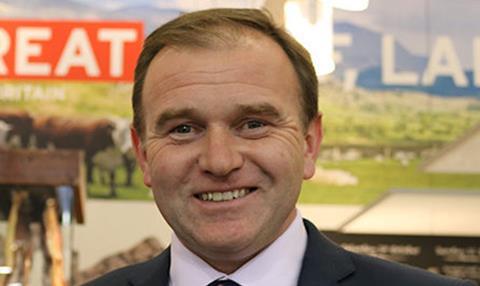Environment secretary, George Eustice, has unveiled a series of agricultural policies aimed to help tackle climate change and to drive farming towards a more sustainable future.

The plans consist of changes that will come into force over a period of seven years to help farmers adapt and plan for the future.
The policies are designed to ensure that by 2028, farmers in England can sustainably produce healthy food profitably without subsidy, whilst taking steps to improve the environment, improve animal health and welfare, and reduce carbon emissions.
The key changes include:
- Introducing the Environmental Land Management scheme to incentivise sustainable farming practices, create habitats for nature recovery and establish new woodland to allegedly help tackle climate change.
- Investing in improving animal health and welfare as part of what is described as a sustainable farming approach. This will initially focus on controlling or eradicating endemic diseases amongst cattle, pigs and sheep.
- Direct Payments will be reduced, starting from the 2021 Basic Payment Scheme year, with the money released being used to fund new grants and schemes to boost farmers’ productivity and reward environmental improvements.
- Launching a Farming Investment Fund, which will, according to Defra, support innovation and productivity. This will open for applications next year and will be used to offer grants for equipment, technology and infrastructure for the future.
- Aiming to simplify and improve existing schemes and their application processes further from January 2021 to reduce the burden on farmers, and to take a modern approach to regulation, cutting unnecessary red tape for farmers and working with industry to design a more targeted regulatory system.
Environment secretary, George Eustice, commented on the new policies: “We want farmers to access public money to help their businesses become more productive and sustainable, whilst taking steps to improve the environment and animal welfare, and deliver climate change outcomes on the land they manage.
“Rather than the prescriptive, top down rules of the EU era, we want to support the choices that farmers and land managers take. If we work together to get this right, then a decade from now the rest of the world will want to follow our lead.”
Reaction
National Farmers Union (NFU) president, Minette Batters, said: “Defra has embraced many of the industry’s ideas for sustainable farming and food production in designing this new agricultural policy for England.
“Farming is changing and we look forward to working with Ministers and officials to co-create the schemes that will help farmers to improve productivity and animal welfare, encourage innovation and realise our ambition to produce increasingly climate-friendly food.
“However, the rate at which direct support reductions will take place, which we understand will not be applied in other parts of the UK, leaves English farmers with significant questions. These payments have been a lifeline for many farmers, especially when prices or growing conditions have been volatile, and will be very difficult to replace in the first four years of this transition. Can Ministers be sure that new schemes will be available at scale to deliver redirected BPS payments?
“Take livestock farmers for example, who we project will have lost between 60% and 80% of their income by 2024 as a result of these reductions. What changes will Defra make to ensure that the new Environmental Land Management schemes offer rewards that provide a genuine income for their businesses while maintaining food production?
“These are the questions Defra needs to answer urgently, for every farming sector and every part of the country.
“If we get it right now, the UK’s food can become the world’s gold standard on animal welfare - and be a beacon for other countries to follow."
“Expecting farmers to run viable, high-cost farm businesses, continue to produce food and increase their environmental delivery, while phasing out existing support and without a complete replacement scheme for almost three years is high risk and a very big ask.
“There are also many uncertainties during this policy transition, not least new trading arrangements after we leave the transition period, as well as the national recovery from Covid-19 and the global challenge of climate change. Moreover, the long-running price war in UK retail often sees farming and growing caught in the crossfire.
“So Ministers must bear these challenges in mind and use the transition period to also address abuses of market power which not only damage farm businesses but also consumer choice and availability. They must also be mindful of the impact sudden drops in income could have, including seriously jeopardising the viability of a farm business and causing knock-on impacts for domestic food production.
“As with any big policy change it is critically important to be clear on its economic impact. We would urge Defra to share this assessment as soon as possible, indeed this has been one of our key asks for the past four years.”
RSPCA chief executive, Chris Sherwood, said: “We welcome the government’s commitment to paying subsidies for improving animal welfare rather than simply for farming based on the size of land, as we know it’s an issue consumers care deeply about. We now need the Government to ring fence part of the budget for animal welfare to ensure these schemes can work effectively.
"Farm subsidies targeted at animal welfare will be good for new trade deals, good for consumers and good for the animals.
“Priorities should include ring-fenced funding for training, infrastructure, and enrichment to improve animal welfare and financial support for farmers on income foregone when they are transitioning to higher welfare standards .
“If we get it right now, the UK’s food can become the world’s gold standard on animal welfare - and be a beacon for other countries to follow. Paying farmers to achieve high animal welfare standards makes perfect sense.”
This story was originally published on a previous version of the Meat Management website and so there may be some missing images and formatting issues.












